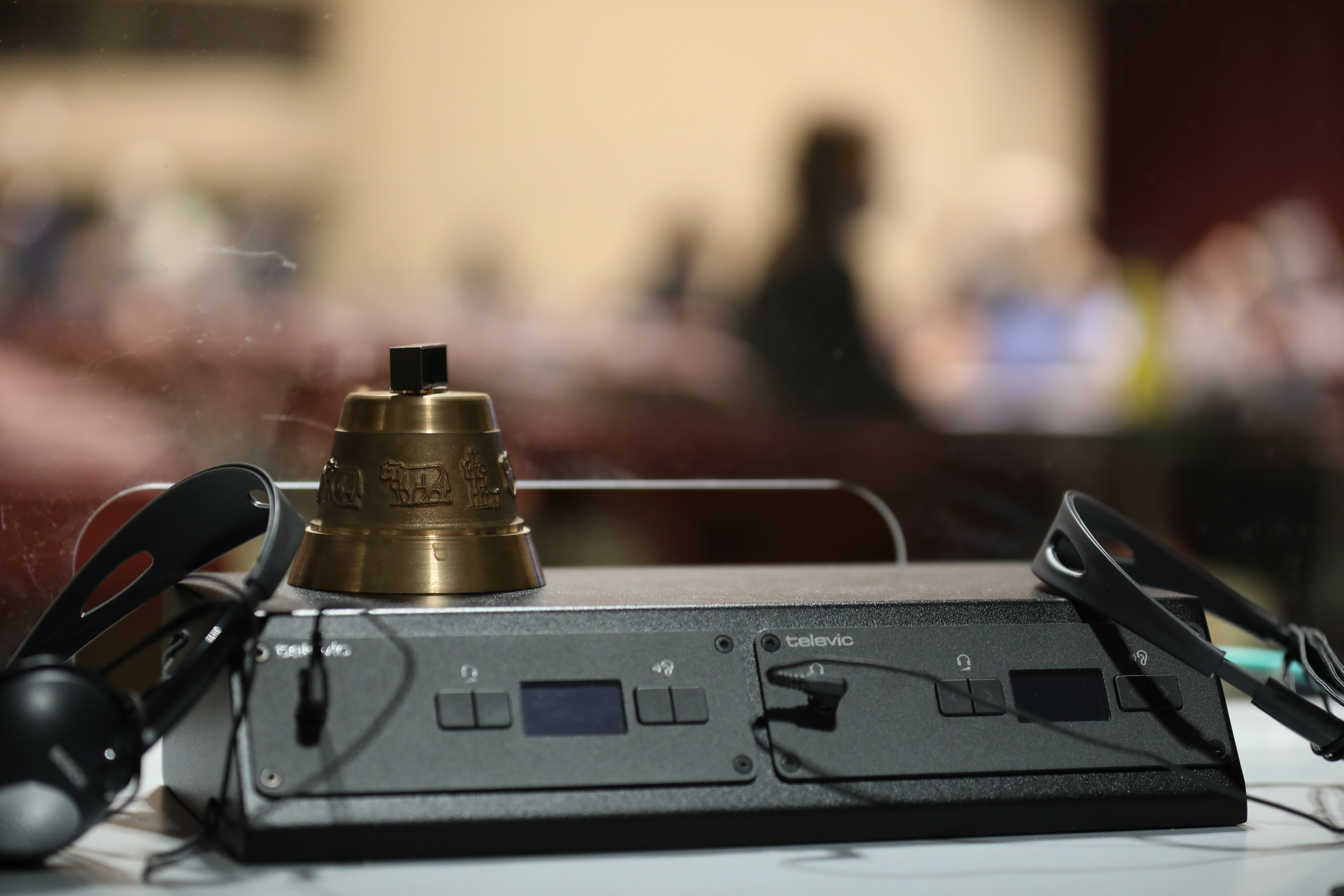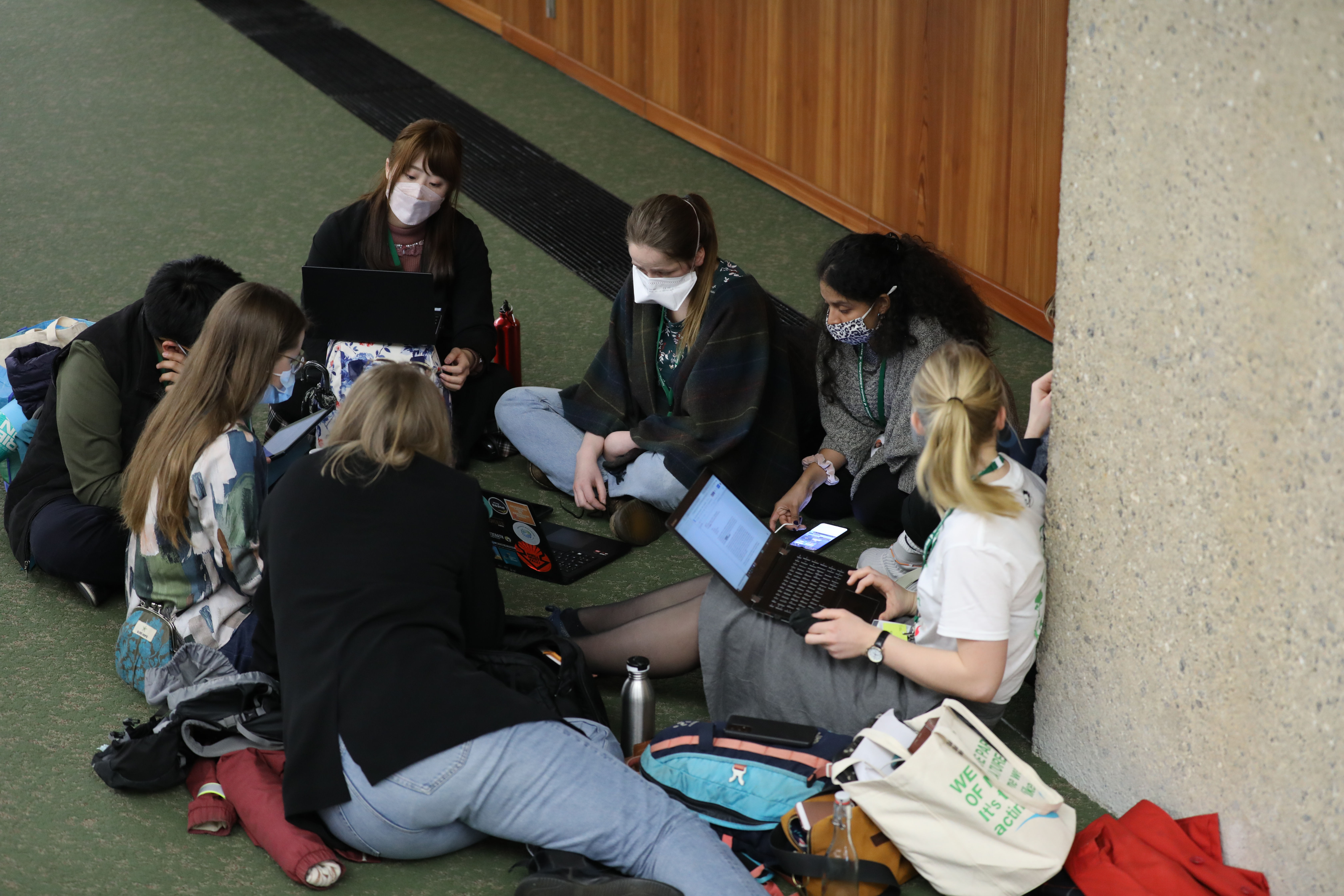[FMAL-05] Whatever Happens In The Non-Paper Stays In The Non-Paper
Welcome, dear contestants! This is the rough-and-tumble world of Fondue, and Maybe a Lake, and I am your host, Bernard Soubry. Let’s play to win.

Contact groups today; we’re getting into the weeds. Spent the whole morning in the back of the plenary chamber, switching out roles: scribe for the world’s slowest conversation about a paragraph on the role of how digital sequencing information should be represented in the new GBF;^ and photographer, now that our photographer has officially tested positive for COVID and is confined to his room for a few days**. Click. Snap.
In UN negotiation parlance, a contact group is not a small rugby squad. It is not an improv dance troupe. It is not some sex thing your parents warned you against. It is a kind of pocket dimension that the CBD uses to avoid saying the quiet parts too loud.
It's kind of like: imagine you want to say something very important to your friends about how you feel, but you’re embarrassed and you wish you could create some kind of judgement-free zone in which to just spew your guts without getting weird looks: this is kind of what the contact group is for. Everybody still shows up, but nothing anyone says gets attributed, and nothing is final. Unless everyone agrees to release it officially into the outside world, anything that’s said ends up in a non-paper, which isn’t even the most UN thing we’ll probably talk about this week. It is a paper that does not exist and has no legal standing, but that you can download off the CBD website. Essentially a way of saying: OK, there are no bad ideas. And even if there are, no one can that tell you were the one to have them.
It goes deeper: if contact groups aren’t working out, if text isn’t coming forth as from the mouths of babes, you can form a Friends Of The Chair group, which is a kind of special-ops, pinky-swear, whatever-happens-in-Vegas kind of chat with only those who are actually interested in writing some stuff down for everyone else to consider.
Once you go to plenary in the subsidiary bodies, you’re on record; you are actively crafting policy, and your positions get agreed on with your ministers and sub-ministers. That is the real deal, hearts-get-broken time. But contact groups are a Safe Space. Just a couple of diplomats shooting the shit about--where are my notes from today—agriculture and biodiversity, capacity-building, and targets related to meeting people’s needs through sustainable use and benefit-sharing.
So that was my day: listening to contact groups, not writing anyone’s names down, just taking the pulse. It didn’t sound good, to be honest. The problem with using contact groups is that it prevents you from doing the very real work that might get you some judgemental stares, or some conflict: you can throw out a bunch of suggestions, and they'll get punted down to the real plenary. It is, effectively, like talking to other friends about the problem you have about this one friend: it will help you get your ideas in order, but it is not actually talking to that friend, which is what needs to happen. But it can be scary when you confront that in front of other people.
Case in point: this afternoon, some countries forgot that they were in a contact group and wanted to get very real, very fast. They started suggesting actual changes to actual text of the actual draft of the GBF, it did not go over well. Parts of the room got flustered. Everyone was awkward and silent for a second. The co-chair had to remind everyone that it’s cool, we’re just talking, and everyone very slowly and tentatively relaxed. The country who had gotten very real apologized for getting too real, and made a joke, and we went back into contact-group land.
And some things got done, actually, which was good; and all of them went into the paper that is not a real paper. Which is the miracle and the curse of contact groups.

Sometime around four o’clock, I head a muezzin calling down the hallway. Weird. Poked my head out and saw, behind a giant conference centre whiteboard that had been placed as some kind of divider, three sets of calves and knees, all facing East. And then heads bowing to the ground.
A quiet little five minutes, in an out-of-the way hallway behind the interpreters’ booth: I guess the Secretariat forgot to provide a prayer room to the Muslims, and these folk were praying (the Asr? the Maghrib? what time schedule were these guys on?) wherever they could. I thought about taking my camera to snap the prayer mat and the legs under the whiteboard, but it seemed so private and unassuming that it would have been disrespectful.
I slunk back to my desk and, still hearing the muezzin coming out of someone’s iPhone, still felt invasive. Wished I’d brought earplugs.
Noise-cancellingly yours,
B
^ For those of you just joining us: Global Biodiversity Framework.
**Turns out removing all health measures from Switzerland might have been a terrible idea.